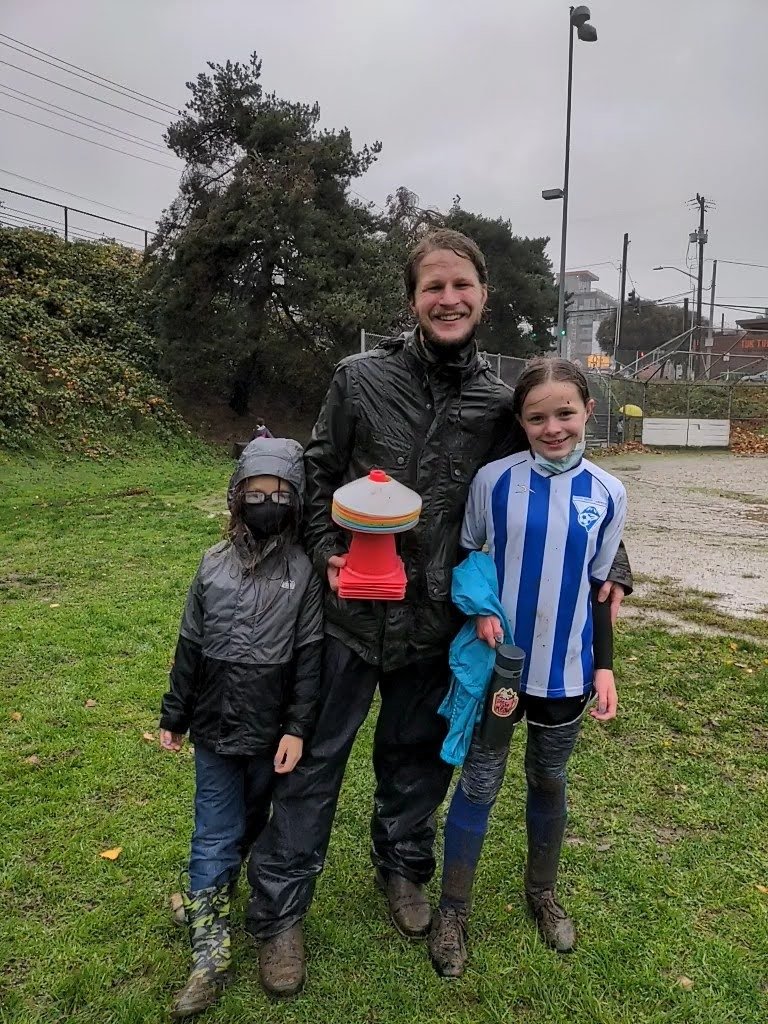Welcome to our SYSA educational series! This series is where we provide advice, guidance and useful tools for parents, coaches and volunteers within the Seattle Youth Soccer Association.
Building great team culture is one of the most important and impactful things that you can do as a youth soccer coach. Taking the time to think about and actively cultivate team culture will help you set your team up for success before you even start the season. It allows you to create an environment, right from the beginning, that fosters growth, teamwork and positivity.
Image credit: Canva Pro
The culture on a youth soccer team has a massive impact on how players will perceive the season once it's over. If a team wins all of its game, but has a very negative culture, player may not want to return. On the flip side, if a team doesn't win very much but has strong team culture and the players have fun, you can bet they'll be excited to sign up again next year.
{Related read: Keeping soccer fun! Here's why it's so important}
Besides the environment being a more positive one, and the players having more fun, teams also play better soccer when the culture is good. This is because players are better able to connect, work together, and support each other when there's strong team culture on their soccer team. Players learn better, improve more and are more enthusiastic about playing, as opposed to when they are on a team with toxic culture, cliques and lack of trust among teammates.
While you can let team culture develop organically as the coach, taking the time to actively think about and intentionally build great team culture gives you a strong foot to stand on headed into the season. It helps sets the tone and makes the whole process of starting up a new team more enjoyable. As an involved, caring coach, you want to be be an active builder to proactively create and implement the culture.
Here are 5 steps you can take towards building great team culture on your SYSA recreational youth soccer team:
Step 1: As the coach, know your 'why' and be clear on your values
The process of building great team culture starts with self-reflection. Knowing 'why' you have chosen to coach is important when it comes to setting a culture for your team because it helps you define your values and it gives you foot in the game. When you truly believe in the culture you are trying to set, the entire process becomes much easier to create and promote.
Here are some self-reflection questions to ask yourself:
What is my 'why'? Why do I WANT to coach youth soccer? Why AM I coaching youth soccer?
What core values am I passionate about, both in soccer but also in my own life?
What values do I personally feel are the most important things for players to learn and embody?
Step 2: Choose what core values your team culture foundation will be built on
After reflecting, it's time to decide what core values you would like to build the team culture around. While they should include pieces of your own personal values, you will also need to consider what else the team needs, at large, to be successful together.
There are an infinite number of choices that could benefit the team, definitely. But when it comes to building a foundation, it's important to identify just a few CORE VALUES. Having a small number of core values really allows you to emphasize them and go deep with them during your soccer season.
Here are some examples of foundational core values you could consider:
hard work
integrity
respect
positivity
accountability
resilience
appreciation
trust
selflessness
courageousness
creativity
teamwork
Step 3: Be clear about the team's focus and goal for the season
Is the team’s goal for the season improvement, or winning games? When asked, most coaches will say that it is improvement, but then their actions might show that it is not.
Getting caught up in the winning aspect of youth soccer is easy to do, which is why you should make a commitment to yourself and to your team that everyone’s collective group focus will be on improvement. If wins happen along the way then great. Not a requirement for a successful season, but great and fun none the less.
Make sure that at the beginning of the season, you are crystal clear about the team's focus and goals for the year. And that means stating it out-loud to the other parents. Hold the entire group accountable to this by making it public.
Here's a simple thing you can do to cultivate this element of your team culture. Suggest to parents that they start asking their player "how did you play today?" instead of "did you win?" Simple things this will help steer the collective attitude away from a must-win mentality and towards a mindset of self-improvement and progression.
Step 4: Figure out a plan for building the core values into your practices and games
One of the hardest parts of building great team culture on your SYSA soccer team can be actually figuring out HOW to bring these values into the day to day. While this topic alone could be an entire blog post by itself, this list from Psychology Today is an excellent place to start when it comes to actively developing team culture. Here are just a few ideas to get you started:
Identify leaders on your team that embody the core values and make them captains
Organize practice activities that contain elements of team culture
Allocate team responsibilities to create shared ownership amongst everyone
Create opportunities in which teammates need to collaborate and work together
Recognize teachable moments and use them to encourage your team culture
Have frequent, open discussions surround the team's core values
Step 5: Embody the values yourself
Last but not least, if you want to build good, strong team culture on your SYSA soccer team, as the coach you really need to BE that culture. You must embody it and you must be consistent.
This is super important, because in order to unify your players under a common set of values, they need to buy-in. And it's so much easier for them to buy-in to it when they see you leading the way and setting a great example.































